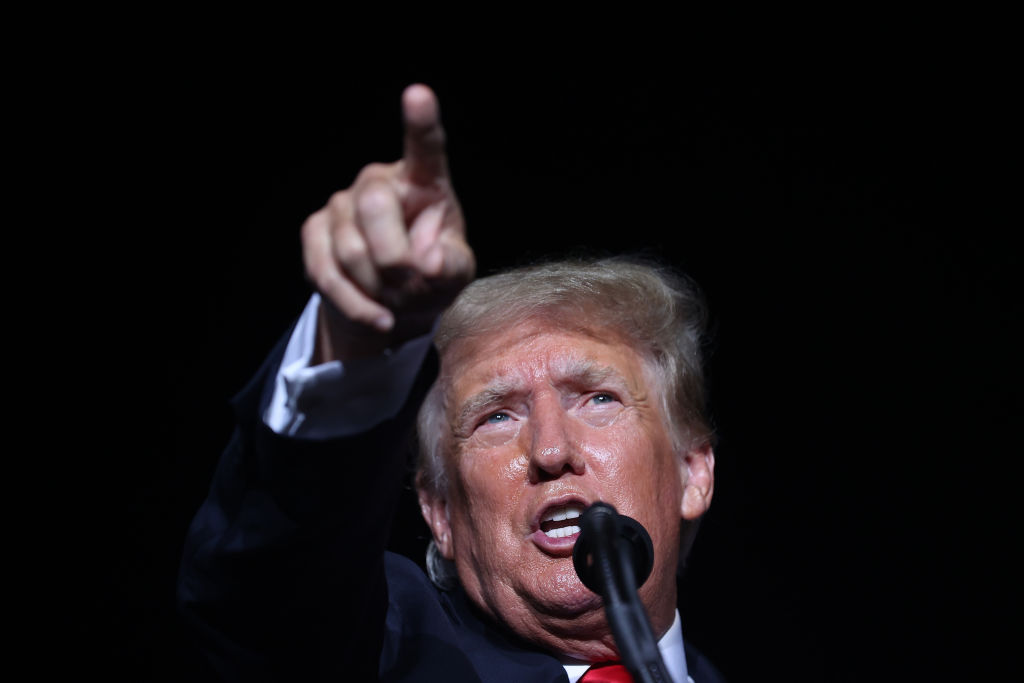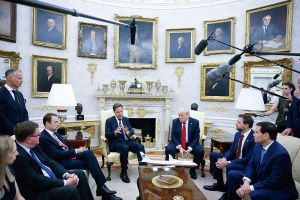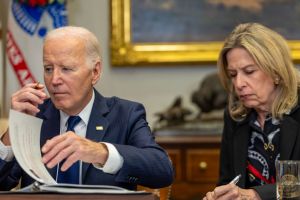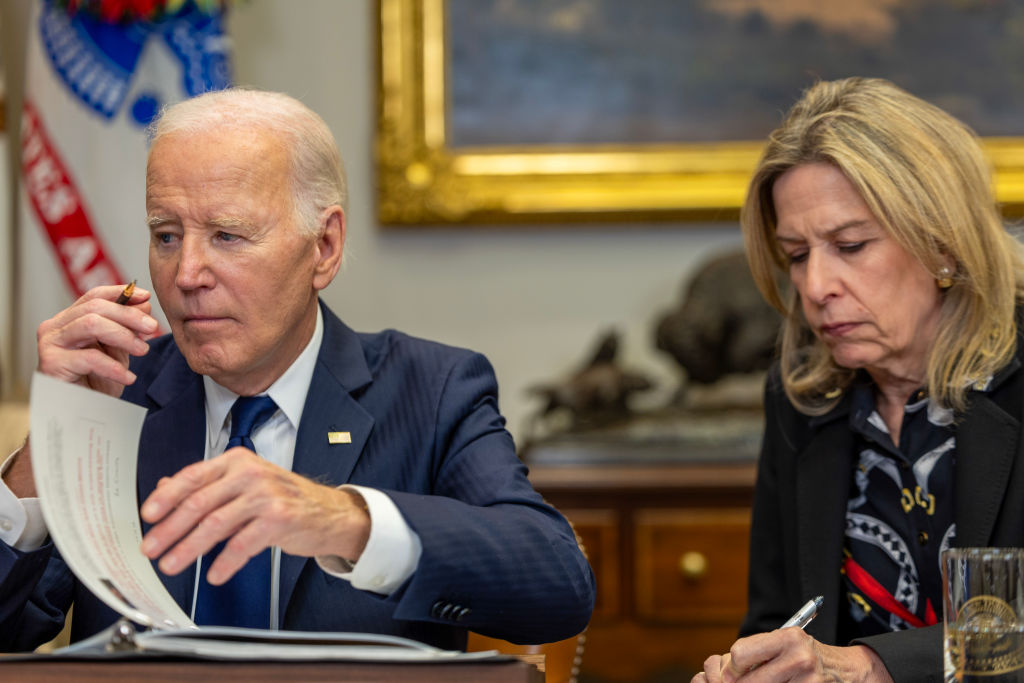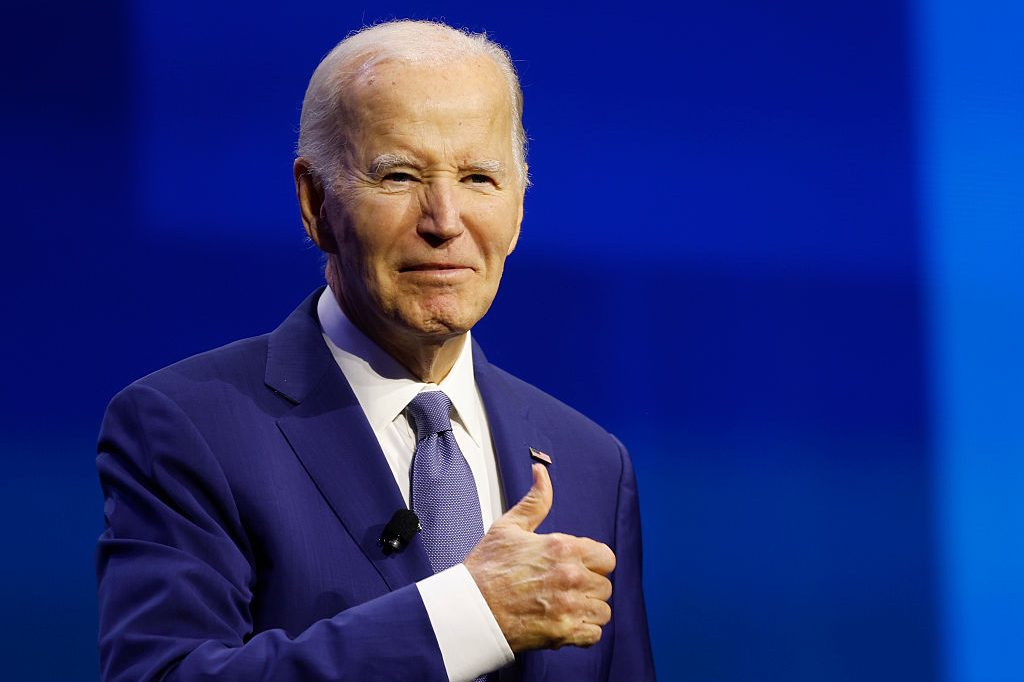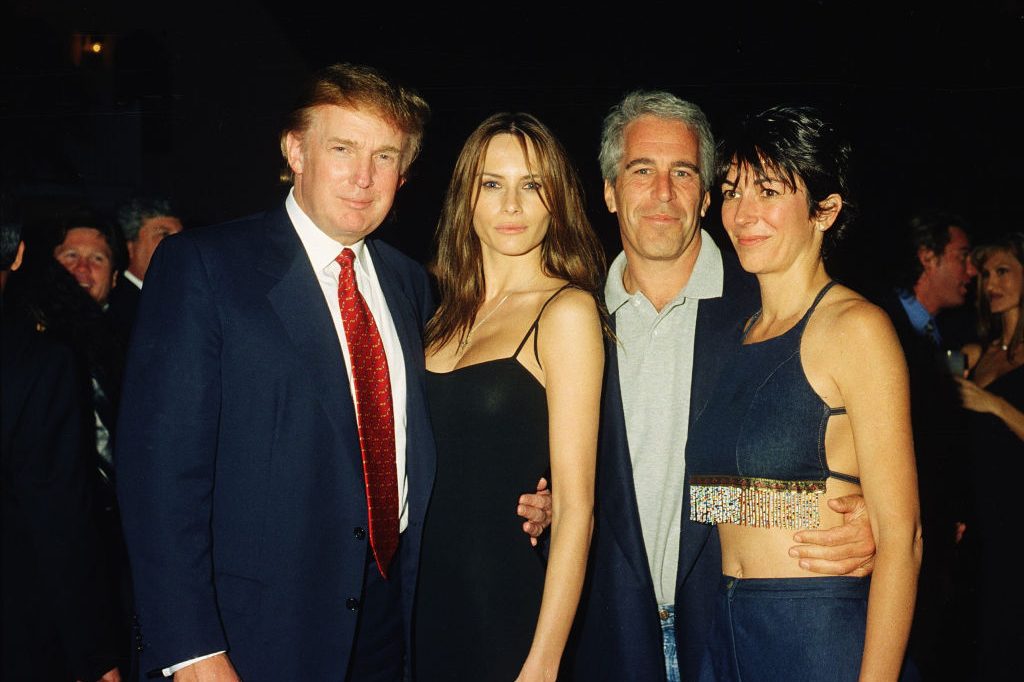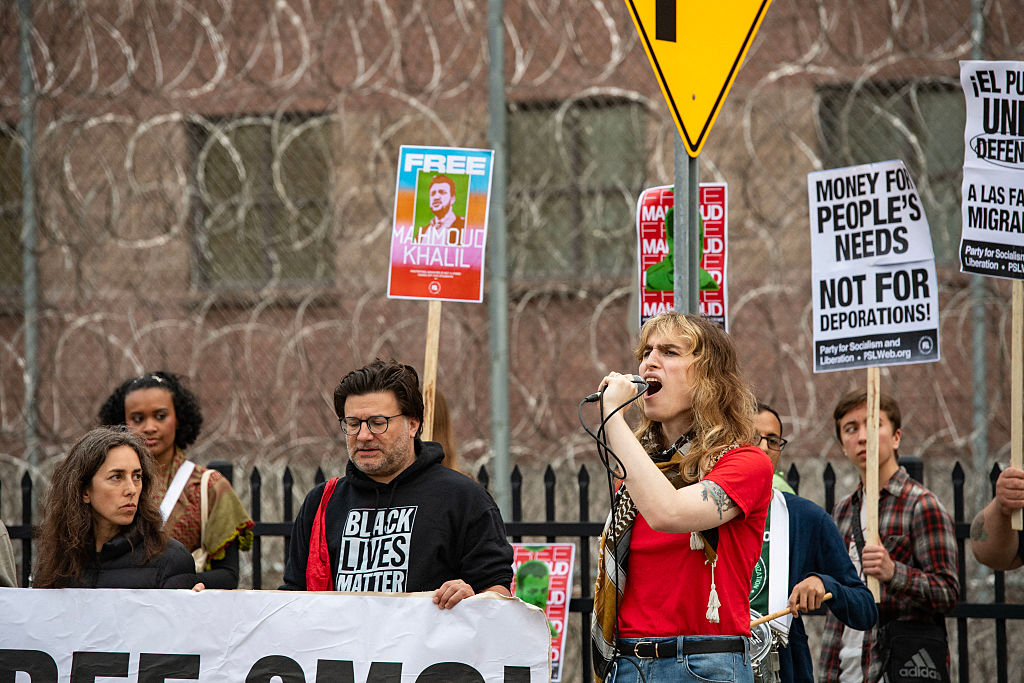It went virtually unnoticed in April when Donald Trump recruited Susie Wiles to oversee his fundraising operation and create a system for issuing endorsements. Wiles is a veteran political consultant in Florida, having worked for Sen. Rick Scott and Gov. Ron DeSantis and helped with Trump’s campaigns there. ‘The president tells everyone around Mar-a-Lago that Susie is now in charge,’ an adviser told Politico. Despite media narratives of Jared Kushner’s withdrawal from Trump’s affairs, one source with knowledge of Mar-a-Lago’s inner workings said Wiles serves a ‘buffer to give Kushner distance’. Wiles currently works with Kushner confidant Bill Stepien on endorsements.
According to broadcaster Stew Peters, Wiles isn’t taking a paycheck for her work. If true, it would be understandable, considering her long relationship as a managing partner in the Jacksonville office of Ballard Partners, a powerful lobbying firm with deep pockets and deeper ties to the GOP establishment and foreign governments.
‘With its rich connections to the White House and “revolving-door” lobbyists who previously held government positions, Ballard Partners made $9.8 million in 2017 and $18.3 million in 2018,’ according to OpenSecrets. Each year of the Trump administration was better than the last; the firm raked in more than $18 million in 2019 and $24 million in 2020. Cosmopolitan in spirit and international in scope, Ballard has catered to domestic and foreign interest groups, from Jeff Bezos to China. The firm took hundreds of thousands from Amazon to lobby the Trump White House on trade and tariff-related issues. That’s just the start.
Amid the trade war, Ballard reported that it received $100,000 in 2018 to lobby for REC Americas, a solar energy firm formally owned by a Norwegian company. Ballard omitted, however, that the business was a subsidiary of ChemChina, a state-owned Chinese company. The Department of Defense included ChemChina in an August 2020 list of companies operating directly or indirectly in the United States with ties to the People’s Liberation Army. In November 2020, Trump signed an executive prohibiting American companies and individuals from owning shares in ChemChina and more than two dozen other entities linked to the Chinese military. No one seemed to work harder against Trump’s stated agenda than his longtime friends and closest advisers.
If the firm is mercenary in who it does business with, then it takes after its founder and namesake, Brian Ballard, the man Politico crowned ‘the most powerful lobbyist in Trump’s Washington’.
Ballard actually began lobbying on behalf of the Trump Organization in Florida over a decade ago. But before filing into Trump’s political column, he served the GOP establishment as national finance chair for Mitt Romney’s 2012 campaign and John McCain’s 2008 race. Leading up to the 2016 election, he fundraised for then-candidate Jeb Bush. After Bush withdrew, Ballard hopped into Sen. Marco Rubio’s wagon. Ballard only went over to Trump’s camp when Rubio pulled out of the race.
That change, however, reflected only a calculated interest. Once Trump became president, Ballard stopped representing him and hired self-described ‘fire-breathing liberal’ Democratic former congressman Robert Wexler as a lobbyist. These days, he is reorienting his firm to lobby Joe Biden’s Washington, adding more Democrats to the company roster. Presidents come and go, riots rage and fade, but the lobbyists remain the same.
None of this is unusual in the world of politics, per se. It is, however, a serious demerit for a movement that styles itself as anti-establishment, populist and opposed to the institutional GOP. Ballard Partners is a monument to everything Trump claimed to stand against as an outsider. And yet its members now occupy high posts in his vast political domain. Pam Bondi, for example, serves as the chairman for the Constitutional Litigation Partnership at the America First Policy Institute. She also chairs Ballard’s Corporate Regulatory Compliance practice.
Bondi joined the firm in 2019 and helped Ballard lobby the White House for clients, including the newly woke Major League Baseball and the Qatari government as the Trump administration was blockading the Gulf state. She then ended up on Trump’s communications staff during his impeachment. Bondi isn’t the only one linked to a firm with a Chinese connection at AFPI.
Former Mississippi governor Phil Bryant joined AFPI as a senior adviser in July this year. In early 2020, during a hand sanitizer shortage, Bryant Songy Snell, Bryant’s consulting firm, worked to help move bulk shipments of Dab, an antibacterial hand rub, to China. Dab was developed with the help of Medical Sparks Biologics, which is connected to Mississippi residents Gary and Na Beck through their company, G&N Enterprise. Na, The Northside Sun reported, is from China, where her relatives manage pharmaceutical manufacturing facilities. Around the same time, after the Trump administration issued a pandemic immigration ban, he and two other Bryant Songy Snell lobbyists were recruited by Nissan to help the Japanese automaker obtain ‘work visas for administrative employees,’ a disclosure filing shows.
So much of Trump’s political infrastructure, ostensibly populist in its orientation, resembles the old GOP establishment from which it has drawn not only its rank and file but its leaders. The mandate, which many Americans still believe in, has become mere window dressing for a money-making machine. Both AFPI and Trump’s Save America PAC are illustrative.
Save America raised tens of millions for Trump on the claim that donations would go toward litigating the outcome of the 2020 election. The fine print on solicitations for funds said otherwise. ‘One of the only restrictions on Trump’s leadership PAC is that it cannot be used to support Trump’s own campaign, including the costs of litigation arising out of his campaign,’ said Brendan Fischer, an expert in campaign finance and government ethics at the Campaign Legal Center. ‘In short, Trump raised tens of millions of dollars on a claim that his PAC would do something that it was legally prohibited from doing all along.’ However, the money could be used on anything from golf club memberships, travel, even direct payments to Trump himself, so long as it is declared income. Trump can also donate to his branded organizations.
On June 15, AFPI received $1 million from Save America. In July, the organization joined Trump’s tech censorship lawsuit. Like Save America, donors were told that their money would saddle them directly in the fight — in this case, make them a plaintiff. ‘Join the lawsuit,’ AFPI president Brooke Rollins told Trump supporters. ‘Signing up as a supporter or donor does not make you a party to, or class member in, any lawsuit in which AFPI may or may not be engaged,’ the fine print on rebutted. While signatories would not become plaintiffs, they would be enrolled in fundraising email lists — and there is a seemingly endless supply of cash going around.
AFPI plans to double its first-year budget of $20 million by next year. Save America entered 2021 with $31 million in the bank; it is now sitting on more than $90 million with just $700,000 of that whopping sum spent in the first half of 2021. It’s worth noting that under Federal Election Commission rules, Trump cannot use funds from Save America to finance a future presidential campaign. At any rate, these are just a few of the many cash vortices whirling around Trump, sapping attention and funds that could otherwise go to grassroots organizations.
But this could only be the natural course of a movement without any ideological grounding. That is why Trump-branded organizations like AFPI are filled with Bushies and Ballard Partners mercenaries. The absence of coherent doctrine is why people like Rollins can push releasing murderers and rapists from federal prison as ‘America First’ policy, and why no one minded that Jared Kushner’s Black Economic Empowerment ‘Platinum Plan’ appeared to be cribbed from the ‘Building Power in Black Communities’ initiative by George Soros’s Open Society Foundations.
Trump’s enterprise all too closely resembles the establishment it claims to oppose. Its members and its leaders are drawn from the permanent structures of the established political order that remain regardless of who is in the White House. Their ideas, loyalties and safety nets are with the institutions of the GOP. If the movement that began in 2016 finally dissipates, Ballard Partners, Heritage, AEI and the like will still be there, waiting for the next revitalizing phenomenon.
The challenge for those left willing and able to pick up the pieces is, at last, purging themselves of all this. And that means burning bridges built on the prestige of a defeated conservatism and GOP that has conserved nothing but its own grift.
The Greeks developed a cyclical theory of political evolution to describe the inexorable rise and fall of political systems. Though different authors had their own take on the ebb and flow of things, the gist is that good regimes devolve into bad ones. It’s hard to survey the ruins of the current year and disagree that we are cycling apace through the sketchy woods of decline.
There is a cycle of political movements as well, one that the working-class moral critic Eric Hoffer traced with Grecian lucidity: ‘Every great cause begins as a movement, becomes a business and eventually degenerates into a racket.’ Though it began by shouldering the earnest hopes of millions, the official Trump movement is well into the racket phase of its evolution.



